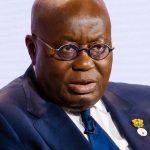Politics
Ghana Politics
This page explores Ghana’s political structure incorporating real-time RSS feed news and videos. By harnessing the power of RSS feeds, visitors can stay informed about the latest developments in Ghana’s politics as they happen. The dynamic nature of these feeds ensures that users receive up-to-the-minute updates on political events, policy changes, and significant milestones, enabling them to stay abreast of the ever-evolving political scene.

Nana Akufo-Addo
5th President of Ghana
Incumbent
Assumed office
7 January 2017
Image credit
Ghana’s political structure is a democratic republic, characterized by a multi-party system and a separation of powers among the executive, legislative, and judicial branches of government. The country has a history of stable democratic governance and is often considered a model of democracy in Africa.
The President of Ghana serves as both the head of state and the head of government. The President is elected through a national popular vote for a four-year term and can serve a maximum of two terms. The President has significant executive powers and is responsible for running the government, appointing ministers, and implementing policies.
The legislative branch of Ghana’s government is the Parliament, which is a unicameral legislature consisting of 275 members who are elected by the people through a first-past-the-post electoral system. The Parliament is responsible for making and amending laws, and it plays a crucial role in the country’s governance. Ghana’s political system allows for a competitive multi-party environment, with regular elections and a peaceful transition of power, which has contributed to its reputation as a stable democracy in Africa.
Unless other sources are listed, original content is provided by ChatGPT. ChatGPT may produce inaccurate information about people, places, or facts. #Ghana #GhanaPolitics #GhanaNews #GhanaNewsToday #GhanaRSSFeed #BlahFace



